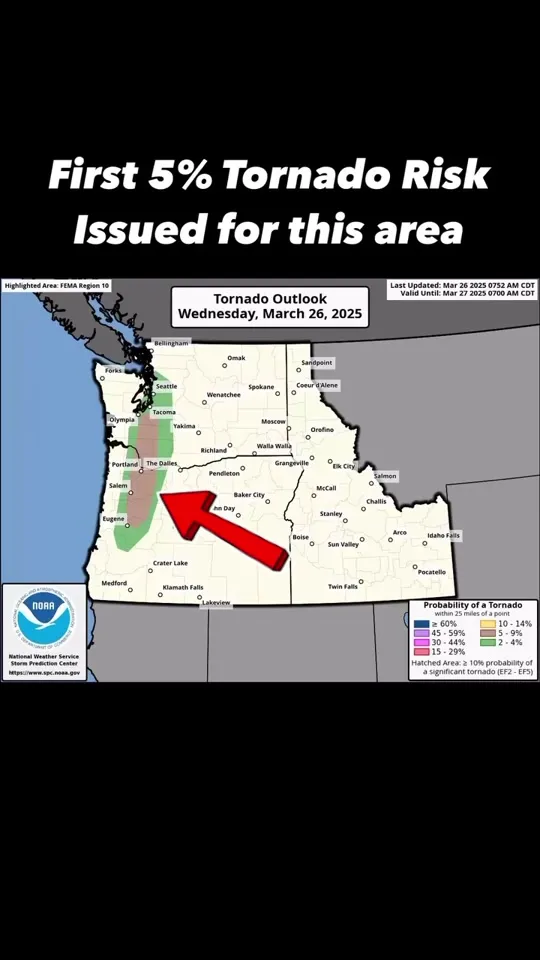“`markdown
Severe Weather Alert: Are You Prepared for the Storms Ahead?
As the frequency and intensity of severe weather events continue to rise across the United States, it is crucial for individuals and families to prepare for the storms ahead. From thunderstorms to hurricanes, the unpredictable nature of severe weather can have devastating impacts on communities. This article explores the current severe weather outlook, the effects of climate change, and the essential steps everyone should take to ensure their safety.
Current Severe Weather Trends
In recent years, the U.S. has witnessed a notable increase in severe weather events. According to the National Oceanic and Atmospheric Administration (NOAA), thunderstorms, tornadoes, and hurricanes are becoming more frequent and intense. For instance, the 2020 hurricane season set records with a total of 30 named storms, leading to widespread damage and loss of life. This alarming trend highlights the urgent need for preparedness.
Climate Change Impact
Climate change is a significant factor contributing to the rise in severe weather events. Warmer temperatures lead to more intense storms, as warmer air can hold more moisture, resulting in heavier rainfall and stronger winds. A study by Carbon Brief indicates that climate change is making hurricanes more powerful, with rising sea levels exacerbating the impact of storm surges. Understanding this connection is vital for effective preparation.
Preparation Tips
To ensure safety during severe weather, individuals and families should take proactive steps. Here is a checklist to help you prepare:
- Create an Emergency Kit: Include essentials like water, non-perishable food, medications, flashlight, batteries, and a first-aid kit.
- Establish a Communication Plan: Designate a safe meeting place and ensure all family members are aware of it.
- Know Evacuation Routes: Familiarize yourself with local evacuation routes and have a plan in place in case you need to leave your home.
Stay Informed
Staying informed about weather conditions is crucial for safety. Regularly monitor weather alerts from reliable sources like the National Weather Service (NWS) and local news outlets. Signing up for local emergency alerts can provide timely updates about severe weather warnings, ensuring you are always prepared.
Safety Measures During Severe Weather
When severe weather strikes, it is essential to take immediate safety measures. Seek shelter in a sturdy building, preferably in a basement or an interior room without windows. Avoid flooded areas, as they can pose significant dangers, and stay indoors during tornado warnings. Remember, your safety is the priority.
Community Resources
Local communities often have resources and organizations available to assist during severe weather. Shelters, emergency services, and volunteer groups can provide crucial support. Familiarize yourself with these resources in advance, so you know where to turn for help in times of need.
Historical Context
Historically, the U.S. has faced numerous severe weather events with devastating consequences. For example, Hurricane Katrina in 2005 resulted in over 1,800 fatalities and significant destruction. Such events serve as reminders of the potential dangers posed by severe weather, underscoring the importance of preparedness.
Psychological Preparedness
Preparing for severe weather is not only about physical safety but also mental health. Anxiety and fear are common reactions to the threat of storms. It is important to manage these feelings through open communication with family members and seeking support from community resources. Engaging in preparedness activities can also help alleviate anxiety.
Post-Storm Recovery
Having a recovery plan is just as important as preparation. After a storm, assess any damage to your property and document it for insurance purposes. Reach out to local authorities for assistance and support, and be aware of available resources for recovery.
Engagement with Local Authorities
Active engagement with local authorities can enhance community safety. Participate in community preparedness programs and drills to familiarize yourself with emergency procedures. Building relationships with local emergency services can also provide valuable insights into how to stay safe during severe weather.
Emergency Alerts and Home Safety Checks
Sign up for local emergency alerts to receive timely notifications about severe weather warnings. Additionally, conduct regular home safety checks to ensure that windows and doors are properly sealed and secure loose items outdoors. These small steps can significantly enhance your safety during storms.
Insurance Review
Review your insurance policies to ensure adequate coverage for storm-related damages. This includes considering flood insurance, especially if you live in a flood-prone area. Understanding your coverage can provide peace of mind and financial security in the event of severe weather.
Community Preparedness Drills
Participating in community drills and training sessions is essential for familiarizing residents with emergency procedures. Engaging in these activities not only enhances individual preparedness but also fosters a sense of community resilience.
Wildfire Awareness
In regions prone to wildfires, it is crucial to create defensible space around homes. Understanding fire weather conditions and having a wildfire response plan can be lifesaving. Stay informed about local initiatives aimed at improving community resilience to climate change and severe weather.
Flood Preparedness
For those in flood-prone areas, specific actions should be taken, such as elevating electrical






Leave a Comment